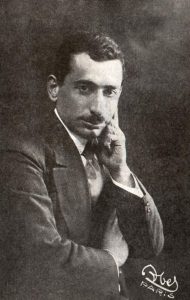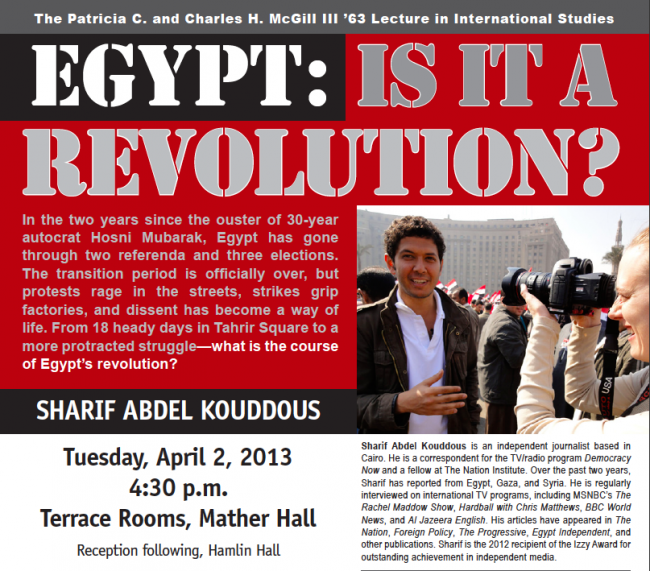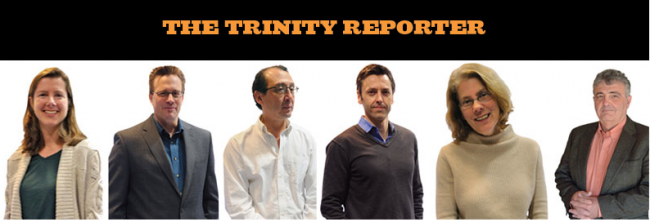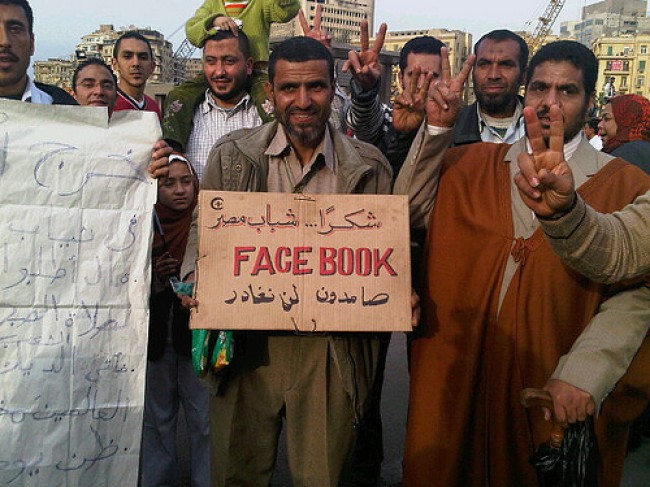Home » Middle Eastern History
Category Archives: Middle Eastern History
“Killing Order”: Talaat Pasha’s Telegrams and the Armenian Genocide–A Lecture by Professor Taner Akçam

By Brendan W. Clark ’21
Editor; History Major
Taner Akçam is a Professor of History and the Robert Aram, Marianne Kaloosdian, and Stephen and Marian Mugar Chair in Armenian Genocide Studies at Clark University. He was one of the earliest Turkish academics to acknowledge the Ottoman commission of the genocide.
The Armenian Club of Trinity and the History Department welcomed Professor Taner Akçam, Professor of History and the Robert Aram, Marianne Kaloosdian, and Stephen and Marian Mugar Chair in Armenian Genocide Studies at Clark University to Trinity on Monday, March 19th. Professor Akçam spoke on his newest book, Killing Orders: Talat Pasha’s Telegrams and the Armenian Genocide. He discussed the significance of the telegrams and their role in affirming the Ottoman governments involvement in many of the events underscoring the Ottoman Empire’s perpetration of the Armenian Genocide.
Akçam began by addressing the continuing denials of the Turkish government, who deny the occurrence of the Armenian Genocide itself. This argument, argued Akçam, rests on the supposition that there was never an official decision by Ottoman authorities to exterminate Armenians. To augment their claims, Akçam cited the two strategies pursued by the deniers: that they have consistently hidden or destroyed the bulk of documentary evidence and that they continue to deny the existence of certain available documents.
Mead Lecture: “The Reinventions of Tradition: Writing Damascus in the Long 16th Century”
I found Professor Sadji’s lecture and work The Barber of Damascus to be very dense and informative. In her lecture, Professor Sadji examines the city of Damascus in the 17th century, which she proves to be a thriving cosmopolitan and a far cry from the war-torn city we know today. One of the five major cities in the Ottoman Empire and a provincial capital, Damascus was a display of the phenomenon she calls “exhibitionism” and was also a microcosm of the Empire as a whole, serving as the departure point for pilgrimages to Mecca. Her book, of which I read the Introduction and first two chapters, detailed the existence of a Damascene barber in the 17th century. His personal diary is fascinating because of the diversity of his interactions. Peasants, saints, commoners, and elites came to the shop and the barber’s account provides a refreshing change of voice in history. As Professor Sadji mentioned in her lecture, history is written by the victors, it is rare to see the oppressed have a voice. This is a theme that is often brought to light in our class, the National Party and its authoritarian control over the school system and the recording of history, subjected black South Africans and silenced their voice. Another interesting point in her book was that the barber viewed his society as a clash between the tyrannical rich and the oppressed poor. – Dan Marini, History, Class of 2018
(more…)
Trinity International Hip-Hop Festival Program, April 7–10, 2016
From its creation in academic year 2005–2005 by a group of Trinity College students as a vehicle to “combat the disunity, segregation, and violence of Hartford, CT and Trinity College,” the Trinity International Hip Hop Festival always has close ties with several History majors and faculty.
One its co-founders, for example, was Jason P. Azevedo ’08, currently a career U.S. Department of State Foreign Service Officer specialized on Africa and Brazil.
Since 2009, History and International Studies Assistant Professor Seth Markle has served as the main academic advisor to Trinity Chapter of Temple of Hip Hop and annual Trinity International Hip Hop Festival.
As the coordinating group has put it, from the beginning the festival’s main strategies and goals have been using a “the historically education-oriented and politically revolutionary medium — Hip Hop – and focusing on its global potency and proliferation, the Trinity International Hip Hop Festival works to unify Trinity College, the city of Hartford, and the Globe.”
This year’s program, includes lectures and panel discussions with a variety of scholars, artists, and community activists; film screenings, graffiti and photo exhibits, workshops, and performances, including Dance Event / B-Boy Battle on Friday, April 8th (7pm–2am), the Saturday April 9th (8pm-2am) Hip Hop Concert, featuring Rakim and several other MCs and DJs. The festival ends on Sunday, April 10th with a DJ showcase and the Iron Poet Slam Competition.
You can find the Festival’s FULL PROGRAM here: 2016 Program for the Trinity International Hip Hop Festival – We hope to see you there!
The McGill Lecture: Egypt: is it A Revolution?
HARTFORD, CT, April 4, 2013 – “The 18 heady days of rebellion in Cairo’s Tahrir Square in January 2011 were filled with hope, promise and the expectation of a better life. But the events of the past two years have not unfolded as envisioned by the tens of thousands of Egyptians who took part in the Tahrir Square demonstrations that led to the ouster of longtime President Hosni Mubarak. Sharif Abdel Kouddous delivers the annual Patricia C. and Charles H. McGill III ’63 Lecture in International Studies. Those were among the major conclusions drawn by Sharif Abdel Kouddous, an independent Cairo-based journalist, who on Tuesday delivered the annual Patricia C. and Charles H. McGill III ’63 Lecture in International Studies in Mather Hall. Kouddous’ lecture was entitled, “Egypt: Is it a Revolution?” The overthrow of Mubarak, an autocrat who had been in power for three decades, was among the first of several uprisings in the Middle East that came to be known as the Arab Spring, and were thought to be the beginnings of democracy taking root in countries where dictatorships had long flourished. Indeed, in the immediate aftermath of Mubarak’s ouster, “foreigners would smile and congratulate me,” said Kouddous. “Today I get a much different reaction – a look of pity. People ask me, ‘What happened?’ Is the revolution over?’ What are the prospects fos for change?’”
Prof. Antrim’s “Mapping the Middle East” featured on the Watkinson Library’s Blog

Originally posted on The Bibliophilie’s Lair: The serendipitous discovery of COOL STUFF in the Watkinson
“Several days ago we hosted professor Zayde Antrim’s “Mapping the Middle East” class. The students pick a historical atlas and answer a questionnaire about aspects of what they see. Here is the course description: “This course approaches the history of the Middle East through maps. It will look at the many different ways maps have told the story of the territory we now call the Middle East and the many different points of view that have defined it as a geographical entity. Readings will analyze maps as social constructions and will place mapmaking and map-use in a historical context. We will relate maps to questions of empire, colonialism, war and peace, nationalism, and environmental change.””
Check out The Bibliophile’s Lair HERE.
LECTURE: Beirut – The Port That Became an Educational Capital
By Duncan Grimm ’15
Thursday, February 14, at the Smith House, Trinity alumna Betty Anderson ’87, Associate Professor of History at Boston University delivered a well-attended lecture on Beirut, Lebanon’s capital city. Presented by the History Department, the International Studies Program, and the Co-Curricular Initiative on Cities, Anderson described how a minor city on the Mediterranean shore became a major trading hub and hotbed of learning throughout the latter half of the nineteenth, and majority of the twentieth centuries, reinvigorated recently in the decades following the Lebanese Civil War.
Today, Beirut is Lebanon’s largest port, responsible for much of the goods that pass in and out of the country. The role of education in this extraordinary urban growth is not lost on Professor Anderson, and is addressed in her 2011 book The American University of Beirut: Arab Nationalism and Liberal Education. Initially seeking to uncover how students of AUB became politicized, Anderson soon discovered that the story of the University lay in Protestant missionary tradition and international intrigue between European nations and the Ottoman Empire.
“Faculty Highlights”: New book by Professor Zayde Antrim
 Routes and Realms: The Power of Place in the Early Islamic World (2012, Oxford University Press) examines early texts produced by Muslims during the ninth through eleventh centuries, paying specific attention to how the authors conveyed attachment to the lands in which they lived. This attachment created what Antrim describes as “widely resonant categories of belonging. “Representing plots of land as homes, cities, and regions in texts…was a powerful way to claim loyalty, authority, and belonging in the early Islamic world,” said Antrim, who teaches courses on Islamic civilizations, Middle Eastern history, nationalism, and geography. “I have always been interested in geography and the ways in which the geographical imagination shapes the way we see and act in the world.””
Routes and Realms: The Power of Place in the Early Islamic World (2012, Oxford University Press) examines early texts produced by Muslims during the ninth through eleventh centuries, paying specific attention to how the authors conveyed attachment to the lands in which they lived. This attachment created what Antrim describes as “widely resonant categories of belonging. “Representing plots of land as homes, cities, and regions in texts…was a powerful way to claim loyalty, authority, and belonging in the early Islamic world,” said Antrim, who teaches courses on Islamic civilizations, Middle Eastern history, nationalism, and geography. “I have always been interested in geography and the ways in which the geographical imagination shapes the way we see and act in the world.””
Read entire article HERE.
In the News: The Cities Initiative

“Fueled by a desire to probe the connections between cities in this country and abroad, Trinity has launched a co-curricular initiative this academic year, “Cities: Global Urban Experience across Time & Space.” The lead professors are Dario A. Euraque, professor of history and international studies, and Garth Myers, Paul E. Raether Distinguished Professor of Urban International Studies. The half-credit course (COLL-131-01) is affiliated with 19 courses having urban themes. They include seven first-year seminars.
(more…)
History Faculty featured in The Trinity Reporter (Summer 2012)
Brianna Diaz of the Trinity Reporter (Spring/Summer 2012) published a feature on 6 faculty members of History Department to discuss writing history. She writes: “In 2012, four faculty members from Trinity’s History Department expect to publish new books. Additionally, two books published by history faculty during the past few years continue to be met with critical acclaim and translated into new languages. The Reporter asked each of these faculty members to comment on their books.” Read entire feature HERE.
(more…)
2011 Grossman Grant Awardee: Max deLone Reports Back on Research Project
By: Max deLone (Class of 2012)
As a history major it can sometimes be hard to figure out where your education can actually meet up with the real world and find practical applications and uses in your life. I’ve always thoroughly enjoyed the study of history throughout my life but was never really able to understand where the skills that I have honed as a history major could find an application outside of an academic environment. In the summer of 2011 I heard about an opportunity to apply for a research grant offered by Trinity’s Center for Urban and Global Studies. Grossman research grants are awarded every year to Trinity students investigating topics around the world either for a Trinity course or under the supervision of a Trinity professor. Although this sort of research wouldn’t allow me to quite escape the confines of academia, I was still able to envision a project that I could carry out on my own, and find a way to put my skills as a history major to work somewhat distanced from the classroom.
(more…)




